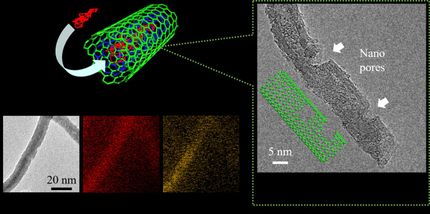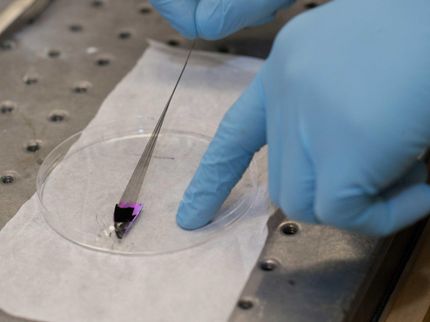Efficient Filters Produced from Carbon Nanotubes
TROY, N.Y. - Researchers at Rensselaer Polytechnic Institute and Banaras Hindu University (India) have devised a simple method to produce carbon nanotube filters that efficiently remove micro- to nano-scale contaminants from water and heavy hydrocarbons from petroleum. Made entirely of carbon nanotubes, the filters are easily manufactured using a novel method for controlling the cylindrical geometry of the structure.
"The research demonstrates how to spray well-ordered nanotube structures directly onto a substrate," said Pulickel M. Ajayan, professor of materials engineering at Rensselaer and one of the authors of "Carbon Nanotube Filters," which describes the manufacture and application of the filters in the September issue of Nature Materials. The work was supported in part by the Center for the Directed Assembly of Nanostructures at Rensselaer and the Ministry of Education in India.
The filters are hollow carbon cylinders several centimeters long and one or two centimeters wide with walls just one-third to one-half a millimeter thick. They are produced by spraying benzene into a tube-shaped quartz mold and heating the mold to 900° C. The nanotube composition makes the filters strong, reusable, and heat resistant, and they can be cleaned easily for reuse.
"In the future, we hope to be able to spray, or print, a great variety of nanotube structures directly onto substrates," Ajayan said. "This method provides a better way of creating more interesting shapes and structures from nanotubes. By adjusting the size and flow of the nozzle, we can define the geometric structure of the nanotube form."
Rensselaer researchers involved in the project are Saikat Talapatra, a post-doctoral research associate at the Rensselaer Nanotechnology Center; Robert Vajtai, a research scientist at the center; and Ajayan. Researchers from Banaras Hindu University in Varanasi, India, are O.N. Srivastava, professor of physics; and Anchal Srivastava, lecturer.
The carbon nanotube filters offer a level of precision suitable for different applications. The experiments demonstrated the filters may be useful in producing high-octane gasoline. They also can remove 25-nanometer-sized polio viruses from water, as well as larger pathogens, such as E. coli and Staphylococcus aureus bacteria. Moreover, the nanotube surfaces of the filters may be chemically modified to create highly ordered and chemically selective pore spaces for high-quality separation of specific chemical mixtures. The researchers believe this could make the filters adaptable to microfluidics applications that separate chemicals in drug discovery.
Ajayan and colleagues plan to continue the development of various macrostructure architectures from carbon nanotubes. Their work is part of the ongoing research at the Rensselaer Nanotechnology Center. The mission of the center is to integrate research, education, and technology dissemination, and serve as a national resource for fundamental knowledge and applications, in directed assembly of nanostructures.
Most read news
Topics
Organizations
Other news from the department science
These products might interest you
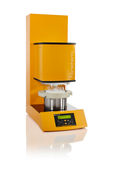
FIBRETHERM by C. Gerhardt
Automatic Fibre Extraction for Feed Analysis
FIBRETHERM from C. Gerhardt: Efficient – Precise – Method-Compliant
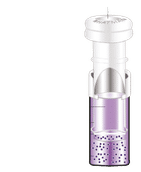
Mini-UniPrep™ by Cytiva
Improved HPLC Sample Preparation
Save 66 % sample preparation time and reduce costs by 40 %

Glass and quartz microfiber filter by Cytiva
Request a glass microfiber sample pack to meet your battery development needs
Delivering efficient and consistent results
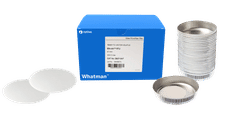
GF/C and 934-AH RTU (Environmental) by Cytiva
Meet wastewater regulations with the right filter
Streamline lab operations and ensure high-quality results
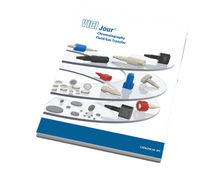
VICI Jour Katalog 15INT by VICI
The VICI Jour Catalog - Accessories for (U)HPLC and Liquid Handling
Capillaries, Tubing, Fittings, Filters, Safety-Products, Tools and much more
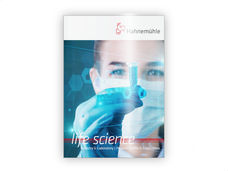
Hahnemühle LifeScience Catalogue Industry & Laboratory by Hahnemühle
Wide variety of Filter Papers for all Laboratory and Industrial Applications
Filtration Solutions in the Life Sciences, Chemical and Pharmaceutical Sectors

Whatman filtration product guide by Cytiva
New filtration catalog - a wealth of information on 286 pages
Discover the perfect filters for your laboratory application

Get the chemical industry in your inbox
By submitting this form you agree that LUMITOS AG will send you the newsletter(s) selected above by email. Your data will not be passed on to third parties. Your data will be stored and processed in accordance with our data protection regulations. LUMITOS may contact you by email for the purpose of advertising or market and opinion surveys. You can revoke your consent at any time without giving reasons to LUMITOS AG, Ernst-Augustin-Str. 2, 12489 Berlin, Germany or by e-mail at revoke@lumitos.com with effect for the future. In addition, each email contains a link to unsubscribe from the corresponding newsletter.
